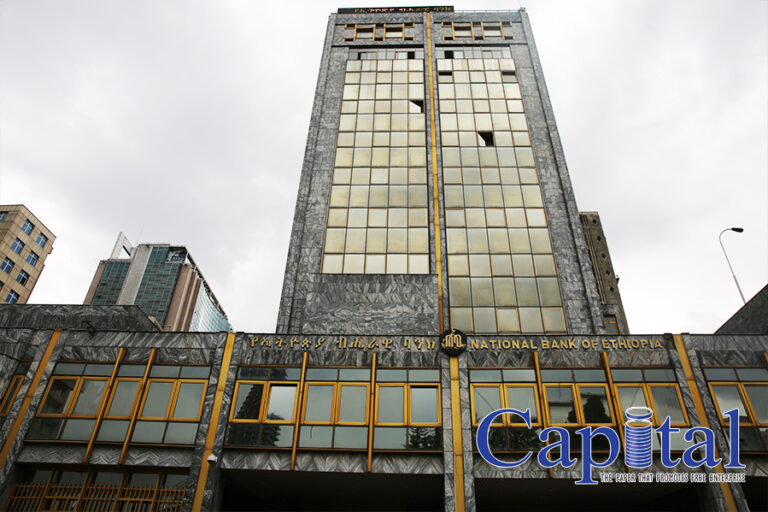The Red Curtain International has a rich history. It was founded in 1969 to promote Good Theatre for Good Causes. One of the first beneficiaries of this cause was Mother Teresa’s Missionaries of Charity.
This vision has also led to the establishment of the Good The@ter Festival and Awards in 2020.
The festival emerged from a need to connect with the world, from within the confines of our home. To move theatre from the stage setup to something more current, more approachable. The Red Curtain International created a space for digital plays, producing three successful online productions. Geographical distances disappeared as people from across the world logged in.
In November 2020, The Red Curtain e-staged The Good The@tre Festival & Aw@rds. Now The Good The@tre Family is more than 1500 the@tre lovers in 30 countries.
This year, the six shortlisted plays that will be part of the Good The@ter Festival & Aw@rds, 2021, come to you from Belarus, Brazil, India, USA, U.K. and Venezuela.
In The Light Catcher, Theatron Entertainment, Pune, combines two distinct presentational formats, theatre and digital, turning the production, spoken from a woman’s perspective, into an exciting visual treat to watch.
Funámbula, by Caracas-based Espacio Cuerpo Metáfora, sheds light on the mind of a person with a mental illness. The free-flowing play depicts a woman walking the tightrope of with her greatest fear–loneliness, and her greatest longing– love. It begins a conversation about mental health and about what hurts us– essential topics in today’s world.
yOU CaN Take ouT a PArEnT pLUs lOaN is written and performed by Camille Simone Thomas, from New York. This semi-autobiographical show merges monologues, slam poetry, projections and character defining moments from her past to analyze the racket that creates student debt and how it affects students of color. This play is especially relevant for anyone who has struggled with student debt, and the pressure of chasing their dreams against the expectation of their parents.
work.txt is an interactive play performed entirely by the audience on a Zoom call, about when things stop working. It is an entirely new, digital, interactive adaptation of Nathan Ellis’ play work.txt, which was nominated for an Innovation Award at VAULT Festival 2020. The moment you log on, you become an integral part of the play. Watch it to understand how theatre can exist and thrive in innovative formats in the digital world. And to be part of the most fun you might have on a Zoom call. This play comes to you from London.
Set in a dystopian future in 2121, As Mariposas, by Os Satyros from San Paulo, Brazil, shows us more possibilities of digital theatre. It is a performance about the future and is the future of theatre. It speaks to the moment we are in, the challenges of being a human being on this planet destroyed by mankind, and the political threats we live with.
Belarus Free Theatre’s A School for Fools celebrates the power of creativity in the most difficult of conditions. It is performed from the bedrooms, kitchens and bathrooms of the ensemble cast – most of whom are self-isolating in a country where doctors and journalists face arrest and intimidation for trying to support public awareness of their cause.
This year, the Red Curtain International is partnering with the Himalayan Children’s Charities; all proceeds go towards transforming lives of orphaned children.
Since 2000, HCC has directly supported over 250 remarkable Nepali students and impacted the lives of thousands more.
While tickets for the festival are free, Sponsorships and Donations will be put into use to help orphaned, abandoned and marginalized children in Nepal. This is done through education, mentorship and a loving family environment.
The Good The@tre Festival & Aw@rds – Good Digital Theatre for a Good Cause
UNLOCKING AIR TRAVEL
When the pandemic hit the globe, the transportation industry, more so the aviation or airline industry was rocked to its core. Financial constraints led to staff losing their jobs as revenues of the airlines hit a record low owing to global lockdowns. A year and a few months on, the aviation industry is bouncing back as lockdowns are being eased.
Recently, IATA’s Regional Vice President for Africa and Middle East, Kamil Alawadhi, paid a visit to Ethiopia to discuss better ways of unlocking air travel. Capital sat down with Kamil for an inside look of his visit and opinions of the aviation industry. Excerpts;
Capital: What was the purpose of your visit to Ethiopia, and how has your stay been thus far?
Kamil Alawadhi: When I started with IATA on February, I was presented with the chance to lead the Middle East and Africa region. This includes 68 countries in Africa and the Middle East including Iran. To this regard, I have to oversee the vast number off stakeholders within these countries, which are four hundred and sixty plus stakeholders.
Six weeks ago I took the conscious decision to visit Africa and atop my list was of course Ethiopia which in my view has a promising aviation industry with the potential to grow and to become Africa’s Hub or aviation center. This was evident as from when I landed I witnessed the smooth transition throughout all aspects of facilitation the airport and it took no time to get out of the airport since there was no complications.
One of the purposes of my visit is to extend my congratulations to Ethiopian Airlines for having stood strong during the pandemic where European countries, America, Asia the Middle East all suffered the shutdown and went through financial and transportation crisis. It is impressive how the airlines primarily shifted to cargo. Moreover, they did not terminate their staff unlike the world’s biggest airlines which is remarkable. This is huge of course from the standpoint of the stakeholders as well.

Converting 14 passenger’s planes to cargo plane were a quick reaction and it kept the aviation industry alive. This is brilliant in that there are millions of jobs reliant on the aviation industry, and this contributed over 219. 4.2 billion dollars to Ethiopia’s GDP.
During my stay which has been great thus far, I have met with the ministry of finance and transport with regards to the handling of the crisis and how Ethiopia Airlines has navigated this and continue to operate. Moreover, as part of my visit, I came to see the aviation industry, including the academy and also pertinent stakeholders. When I visited the academy, it felt as though I was in Europe due to the high standards which are a positive testament to the equality in Ethiopia.
They are set up such kinds of certified training center within a very short period and within the next two years it will be the most prominent training organization, Aviation training organization in Africa, in the Middle East.
They are setting up certified training centers which I believe in the next two years or so will become a prominent training organization with regards to aviation not only inn Africa but the Middle East as well.
Capital: What kind of challenges have you observed?
Kamil Alawadhi: A lot of air lines have gone out the business because of COVID-19, and a lot of have to go into debt. By taking loans, whether it’s from the government, or from Banks or selling their assets and renting it back again which in turns adds about 10 years of debt in to their books because of the pandemic.
It is essential for airlines working to work with cash because the biggest of biggest of airlines are strapped for cash right now. Unfortunately, the way the financial institute in Ethiopia is structured right now has led to funds blocked amounting to almost 60 million dollars placing Ethiopian Airlines in a very difficult position.
If we look at the geographical location of Ethiopia, it is land locked so transportation in, and out for essential goods, medical equipment can only be transported by air. And that means that Ethiopia relies on air travel cargo and aircraft. Of course we are in talks with government entities trying to unburden the weight of the situation and we are encouraging the entities responsible to act with urgency so that the aviation industry to thrive.
Capital: Ethiopian airlines is working to build a grand mega projects of airports, what kind of support is IATA providing to ET?
Kamil Alawadhi: Yes, so this was discussed at high level with a number of stakeholders, and we do intend to play an active role. It is too early to say exactly what that role is but we have excellent track record in assisting governments or even private entities, that is, when it comes to the design and implementation of airports.
Capital: What is your recommendation for African airlines striving to stay in the global competition?
Kamil Alawadhi: It is very clear at this time that an airline can’t stop operating for a day. You can calculate exactly what one day can cost and there’s no airline with that much cash that it can just keep funding itself. Airlines ought to have alternatives and I was impressed with Ethiopian airlines, because it found an alternative by converting into cargo which is a very smart move which kept itself life.
What I have spotted in African airlines is disconnect between government and the aviation industry. It’s almost like they did not recognize that they need and have an aviation industry.

The governments have to decide at some point “Do we need our own Airline private or government in our country? Are we going to give-up on aviation?”
When COVID-19 first broke, almost all African countries gave up on their aviation or received very, very little support from the government thus there was that dilemma, while Europe and US , supported the industry because they know that Airlines play a vital role in the economy. I’m still urging the African Union to support the airline industry and as well as the banks to support the airline in Africa. The support can be shown through governments waiving all the charges, from the airlines. You can also support the Airlines by fly over charges; similarly, central banks should give them government loans with low interest.
Capital: How do you describe the impact of COVID-19 on the aviation industry?
Kamil Alawadhi: Aviation existed 100 years ago before World War I, and World War II. Airlines are incredible at adapting to situation. It hurts the industry but if you don’t adapt quickly you don’t survive no matter what happens.
The Corona crisis is a man-made government, decision crisis is not an airline, but the airlines suffered nonetheless based on what governments decided to do.
What happens to your equipment, your staff, your airlines, resources, the revenue and the CEOs of today are completely in the dark. Airline often plan for 5 years or 10, but now they can’t even plan for a week due to the ups and downs of the pandemic.
It’s man-made. Yes. There’s a Corona virus but Ethiopia is a very fantastic example of how well it did with it Coronavirus. Aviation didn’t stop for two and half seconds and was managed well. It’s had a very intelligent government and a very smart Airline and they worked together but other countries did not have this fortune.
Capital: Can you compare the airlines in the Middle East and the Africa region?
Kamil Alawadhi: Several, several Middle East airlines are relatively new, but they are doing better because they have realized the benefits of the aviation industry thus have invested heavily on the industry by pouring in billions of dollars.
However, the African continent is far slower. You can attribute this because they are already in debt and may not find the financial resources to inject it to the industry. But there are some countries in Africa that are trying to invest in the industry and are successfully doing so.
So in order for you to have a successful aviation industry country, which will positively contribute to the GDP and garner higher jobs, you actually have to focus on a bigger picture of the infrastructure.
Capital: There were some accusations on Ethiopian airlines, in recent times what is IATAs outlook on this?
Kamil Alawadhi: I have heard it through media, is it factual I don’t know. Is it IATA ‘s job to look at this? Not at all.
When a state or UN member country’s Brands Airline operating outside the law, we look at it. But just, because media said we don’t react to the social media to this level. This is because it can cause very foolish response, and accusation sometimes could be politically motivated. It could be true. It could be purely, you know, garbage being produced for a specific intentions. Some say, they are carrying weapons that came from the East bloc whilst others say poached animals and the stories don’t even add up or align. So we prefer to reserve our comments on such.
First structured personal data protection proclamation in the making
Ethiopia’s first structured personal data protection proclamation is to be enacted as one of the first proclamations which are expected to be approved by the council of ministers earlier this Ethiopian year. The Ministry of Innovation and Technology after issuing the first comprehensive data protection proclamation draft has submitted the document to the council of ministers.
“Ethiopia does not have a single and comprehensive legal instrument regulating privacy and data protection, including the obligations of data controllers and processors, as well as the rights of data subjects in general,” said Mandefro Eshete Phd, Legal advisor to the Ministry of Innovation and Technology/ MINT/ adding that however there are rules contained in the constitution and other laws that deal directly or indirectly with data privacy and data protection.
Even if there are no comprehensive guidelines for data protection and no national data protection authority in the country, some sector-specific government authorities have the power to regulate privacy and data protection issues within their regulatory scope.
As Mandefro said, as the country is highly working on digitalization and there could be high transformation of data from one to one and from individuals to companies; the law will be important to guide the use and protection of this data in a compressive way. As he said after certain discussion with different stakeholders and continued review, the draft is now on the last stage of approval by the council.
Ethiopia is also a party to a number of international and regional human rights instruments that provide for the right to privacy and protection of personal information including the Universal Declaration on Human Rights 1948, International Covenant on Civic and Political Rights 1966, the Convention of the Rights of the Child 1989, and the African Charter on Rights and Welfare of the Child 1990. According to Article 9 of the Constitution, these and other human rights instruments ratified by Ethiopia form an ‘integral part’ of the laws of the country.
In the country, the main laws which provide for privacy and data protection rules include: the Constitution; Registration of Vital Events and National Identification Cards Proclamation No. 760/2012, Federal Tax Administration Proclamation No.983/2016, Authentication and Registration of Documents’ Proclamation No.922/2015, Electronic Signature Proclamation No.1072/2018, Electronic Transaction Proclamation No.1205/2020, Licensing and Authorization of Payment Instrument Issuers Directive No. ONPS/01/2020, Financial Consumer Protection Directive No. FCP/01/2020.
Also on Articles 604 to 606 of the Criminal Code criminalize the violation of privacy safeguards guaranteed under the constitution. Pursuant to Articles 604 and 605 of the Criminal Code, whoever commits any of the enumerated acts constituting a violation of the privacy of a domicile or restricted area is punishable with up to five years of imprisonment in aggravated cases.
The most recent version of the Draft Data Protection Proclamation contains detailed provisions on data collection, use, protection and processing, and provides for the establishment of a regulatory entity called the Data Protection Commission.
The draft provides for the definition of ‘personal data’ and sets out the principles (the principle of fairness and transparency, purpose limitation, data minimization, accuracy, storage limitation, integrity and confidentiality, security, and data transfer) governing the processing of personal data. It also contains the fundamental rights of data subjects including the right to be informed, right of access, right to rectification, right to erasure, right to object, right not to be subject to an automated decision making, right to restriction and right to data portability. The Draft Data Protection Proclamation defines ‘personal data’ as any information relating to an identified or identifiable natural person who can be identified. Moreover, the Draft Data Protection Proclamation lists certain personal information as ‘sensitive personal data.’ This category of personal data includes information on racial or ethnic origin, political opinion, religious belief, membership to a trade union, physical, and mental health condition, sexual life, genetic information, commission, or alleged commission of a crime and legal proceeding against the subject.







